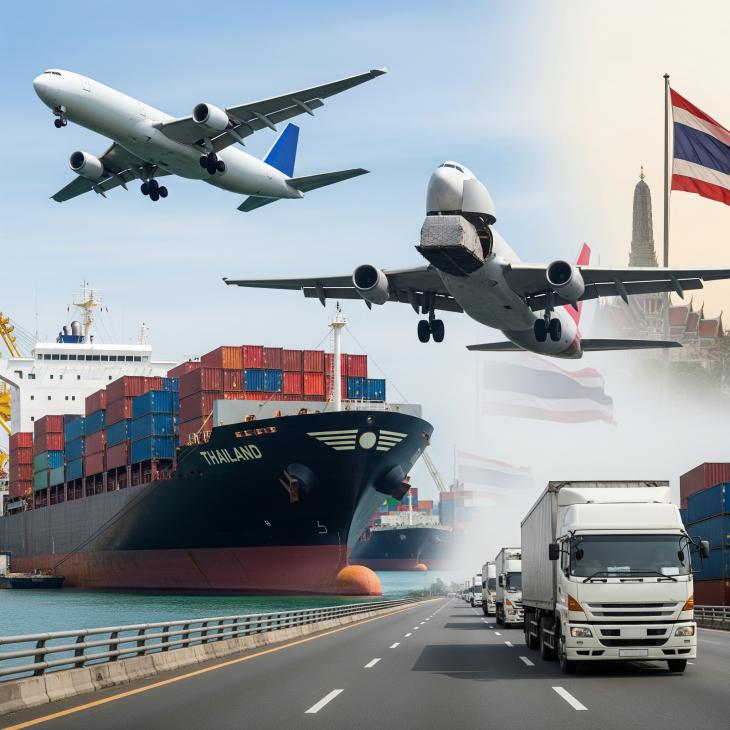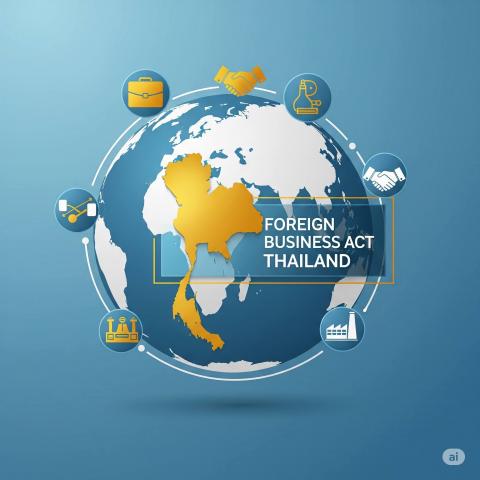Securing Your Import Export License in Thailand: A Guide for Foreign Businesses
Engaging in international trade from or into Thailand requires proper legal authorization. Obtaining an Import Export License (often referred to as a customs card or paperless license) is a critical step for foreign businesses looking to operate legally and efficiently. PS Law & Business offers expert legal assistance to navigate the complexities of Thai trade regulations and secure the necessary licenses for your enterprise.
Why is an Import Export License Necessary?
An Import Export License in Thailand serves several key purposes:
- Legal Compliance: It ensures your trading activities adhere to Thai laws and regulations, avoiding potential penalties or disruptions.
- Customs Clearance: The license is essential for registering with the Thai Customs Department's electronic system (e-Customs), which is mandatory for clearing goods.
- Credibility: It demonstrates your business's legitimacy to partners, customers, and regulatory authorities.
- Access to Benefits: In some cases, it can be a prerequisite for accessing incentives offered by bodies like the Board of Investment (BOI).
Understanding the Licensing Process
The process of obtaining an Import Export License in Thailand typically involves the following stages:
- Company Registration: Your business must first be legally established in Thailand. This usually involves registering a Thai limited company with the Department of Business Development (DBD).
- VAT Registration: Your company must be registered for Value Added Tax (VAT) with the Thai Revenue Department and obtain a VAT certificate (Phor Phor 20).
- Corporate Bank Account: A Thai corporate bank account is required.
- e-Customs System Registration: You need to register your company with the Thai Customs Department to use their online "paperless" system for import and export declarations. This involves obtaining a digital certificate.
- Specific Permits (if applicable): Depending on the nature of the goods you intend to import or export, additional specific licenses or permits may be required from relevant government agencies. For example, food products, pharmaceuticals, cosmetics, hazardous materials, and certain agricultural products require approval from the Food and Drug Administration (FDA) or other specific ministries.
General Documents Required
While specific requirements can vary, common documents needed for the Import Export License application include:
- Copy of Company Affidavit and Company Registration Certificate (updated)
- Copy of VAT Registration Certificate (Phor Phor 20)
- Copy of the first page of the corporate bank account statement
- Copy of passport(s) of the authorized director(s)
- Company's seal registration (if applicable)
- Power of Attorney (if appointing a representative like PS Law & Business)
- Other documents as may be requested by the Customs Department or other relevant agencies.
How PS Law & Business Can Assist
Navigating the Thai regulatory landscape for import and export activities can be challenging for foreign businesses. PS Law & Business provides comprehensive legal support, including:
- Advising on the appropriate business structure for your trading activities.
- Assisting with company registration and VAT application.
- Guiding you through the e-Customs registration process.
- Identifying and applying for any specific permits required for your goods.
- Liaising with the Thai Customs Department and other relevant government agencies on your behalf.
- Ensuring all documentation is correctly prepared and submitted.
Our goal is to make the licensing process as smooth and efficient as possible, allowing you to focus on your core business operations.
Beyond the Initial License
It's important to note that maintaining compliance is an ongoing process. This includes proper customs valuation, tariff classification, and adherence to all import/export declarations and reporting requirements. PS Law & Business can provide ongoing legal counsel to ensure your continued compliance with Thai trade laws.
Frequently Asked Questions (FAQ)
Q1: How long is an Import Export License valid in Thailand?
A1: Typically, the general Import Export License (Customs Card) is valid for three years from the date of issuance and will need to be renewed thereafter.
Q2: Can an individual foreigner obtain an Import Export License in Thailand?
A2: Generally, Import Export Licenses are issued to Thai registered companies. While there might be very limited exceptions, forming a Thai company is the standard route for foreigners to engage in import/export activities.
Q3: What types of goods require specific additional licenses beyond the general import/export license?
A3: Many goods are subject to control by various ministries. Examples include food items, drugs, cosmetics (FDA approval), hazardous substances, certain raw materials, protected plants or animals, firearms, and ammunition. It's crucial to verify the specific requirements for your products.
Q4: How long does it take to obtain an Import Export License?
A4: Once your company is registered and has its VAT certificate and bank account, the registration with the e-Customs system can be relatively quick, sometimes within a few days, provided all documents are in order. However, if specific permits for certain goods are needed, the overall timeline can be longer.
Q5: What is the role of the Board of Investment (BOI) in import/export licensing?
A5: While the BOI does not directly issue the standard import/export license, obtaining BOI promotion for your business activities can offer various incentives, which may include exemptions or reductions on import duties for machinery or raw materials. A separate import/export license will still generally be required.




